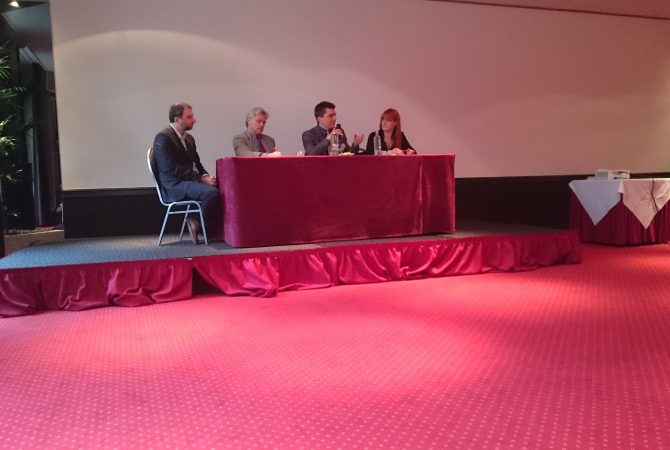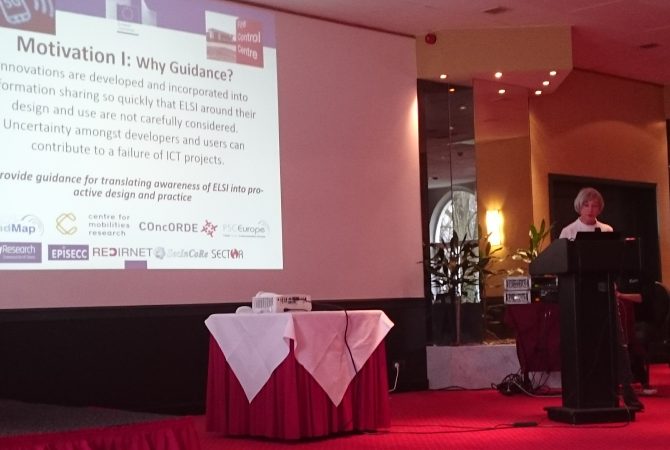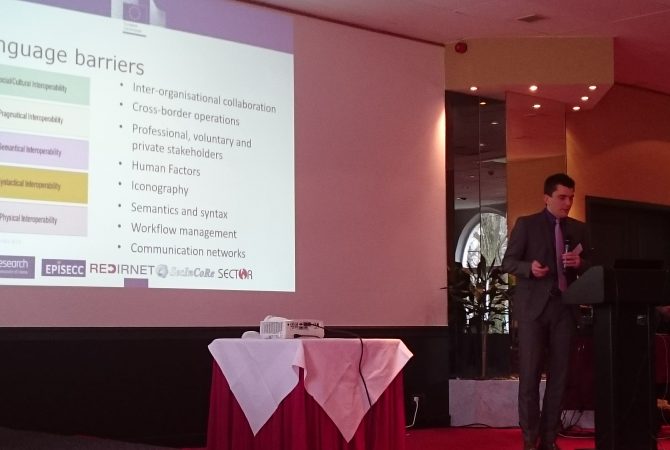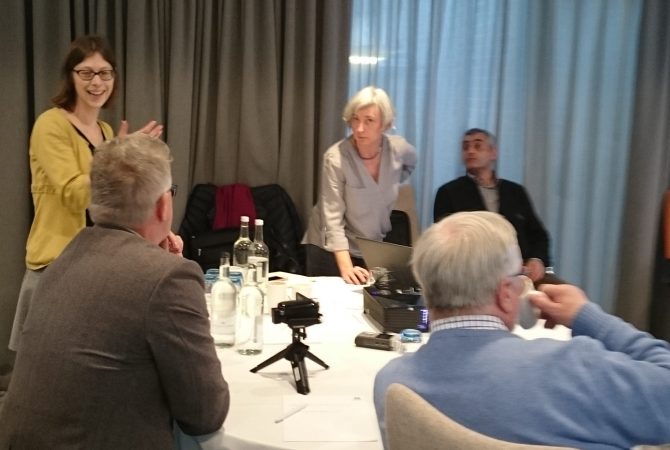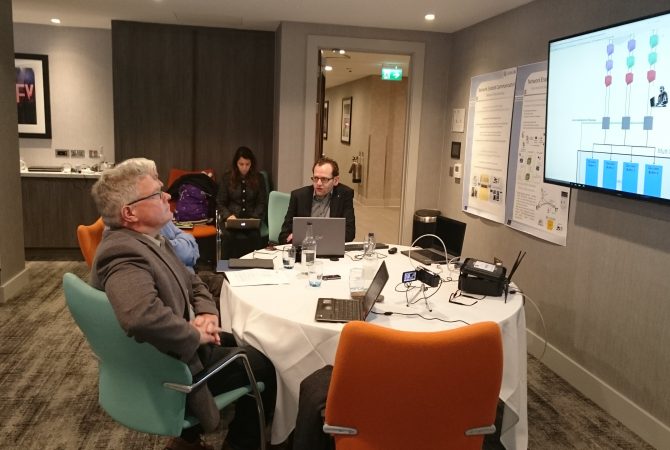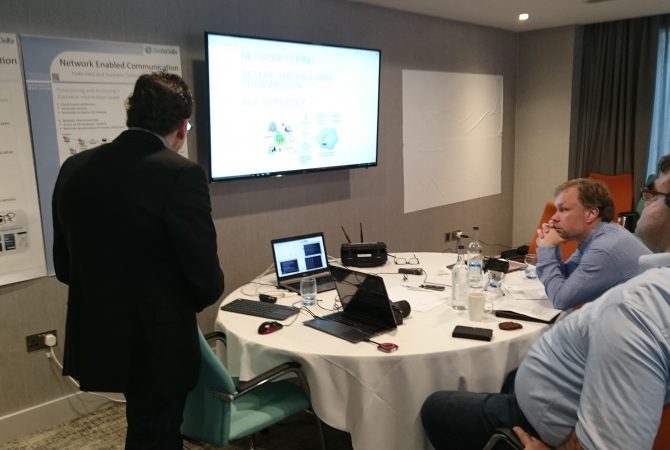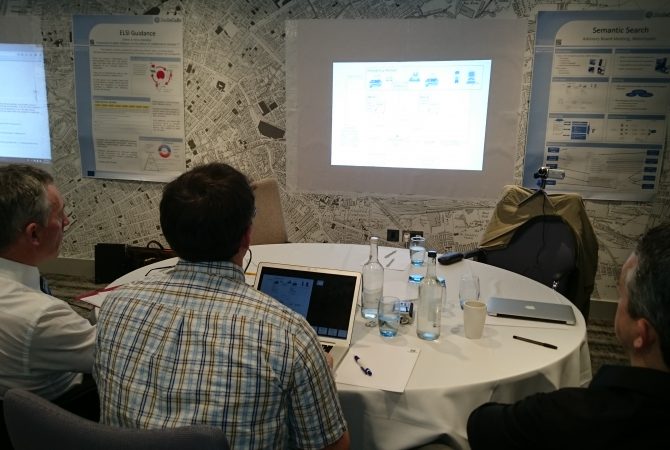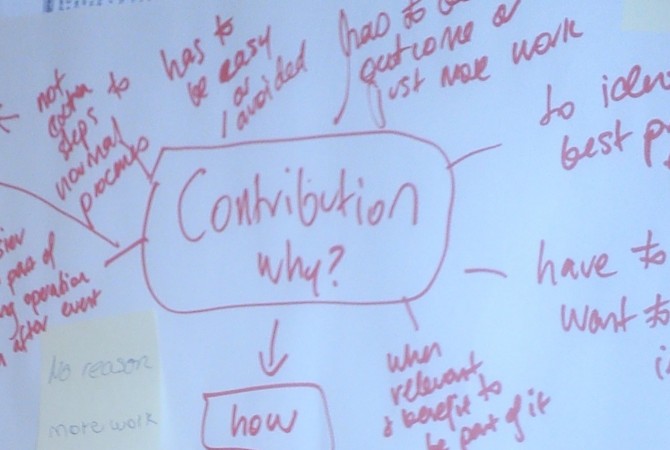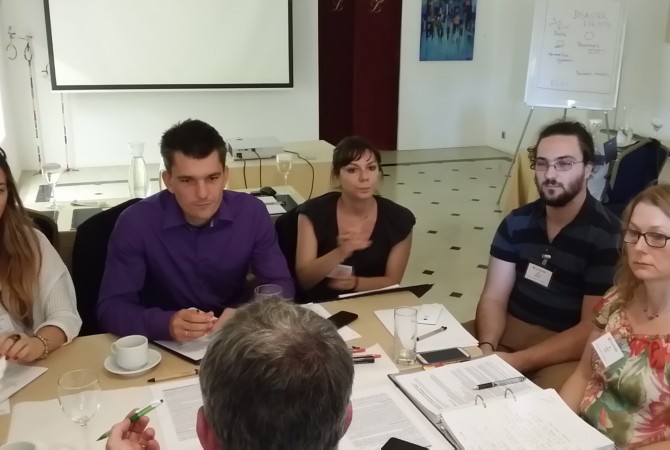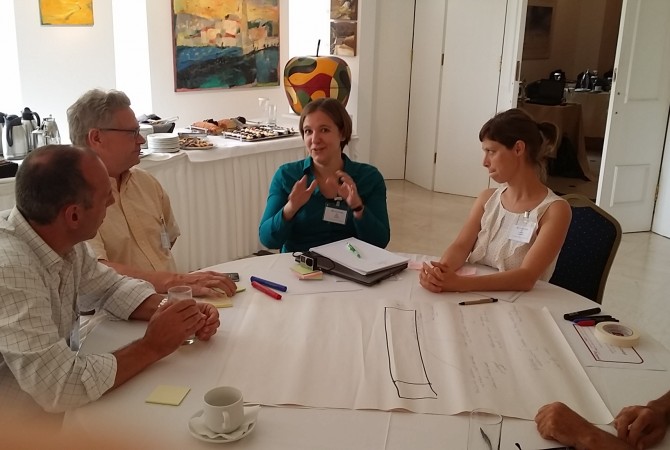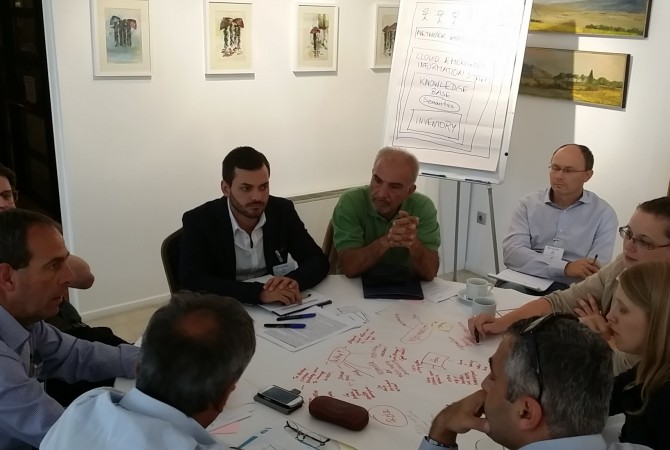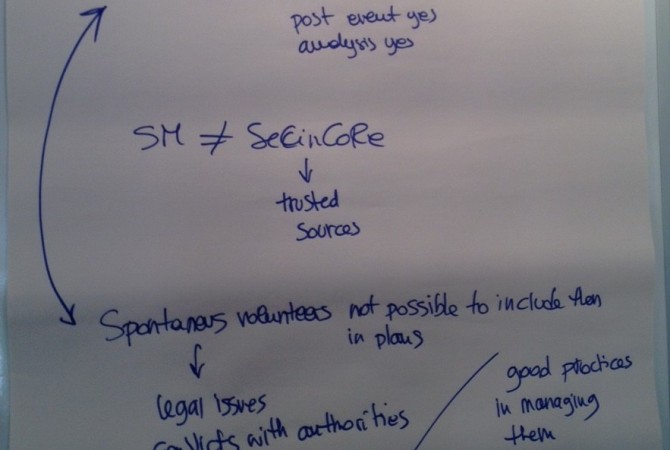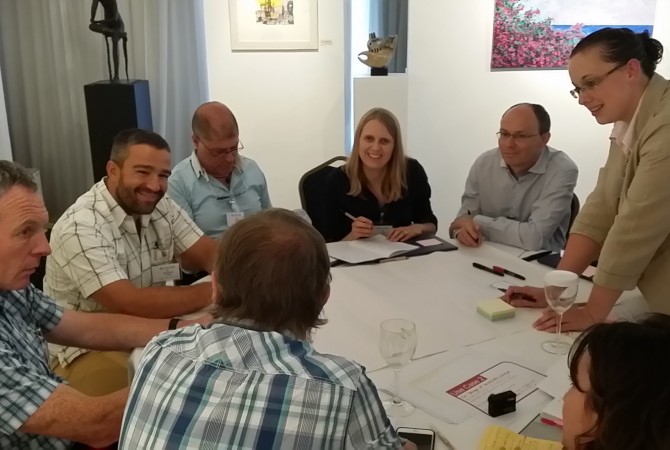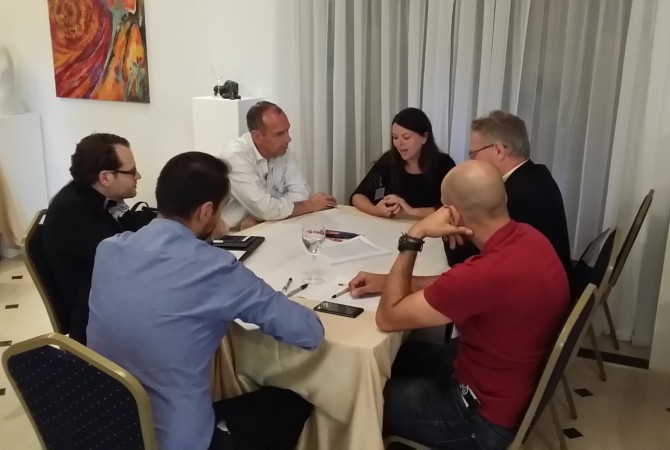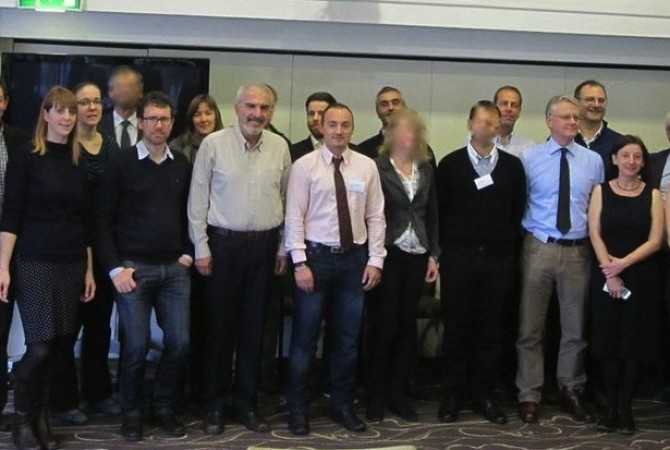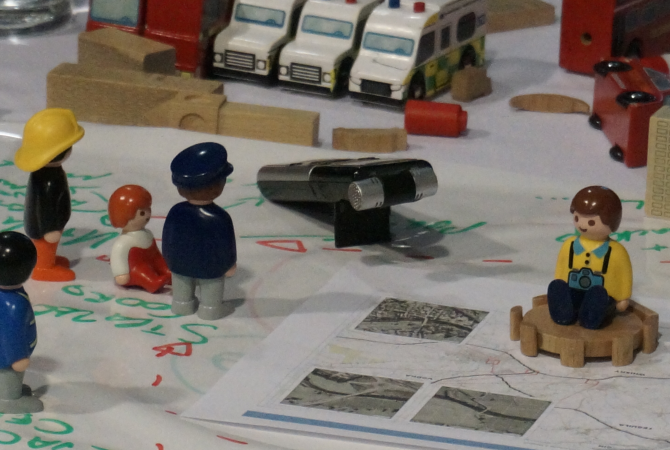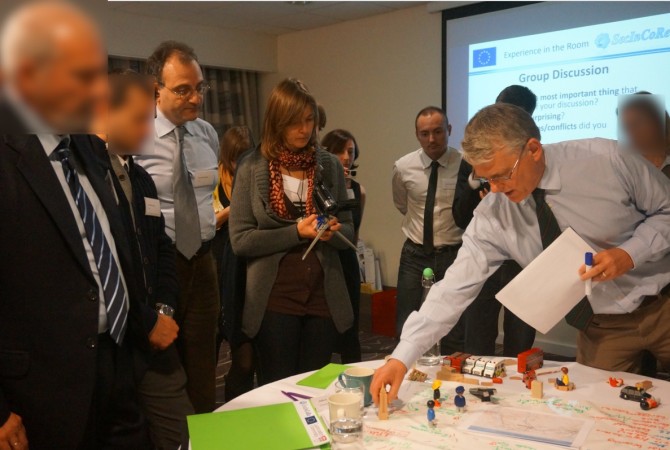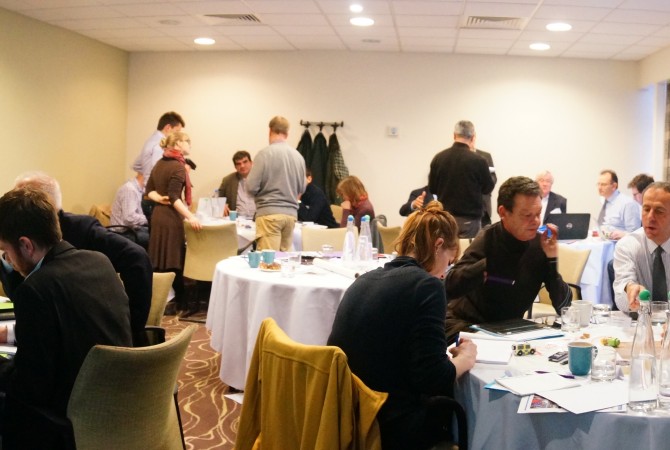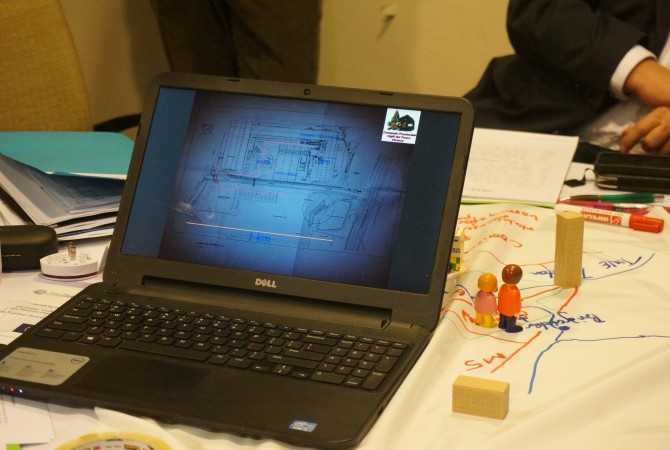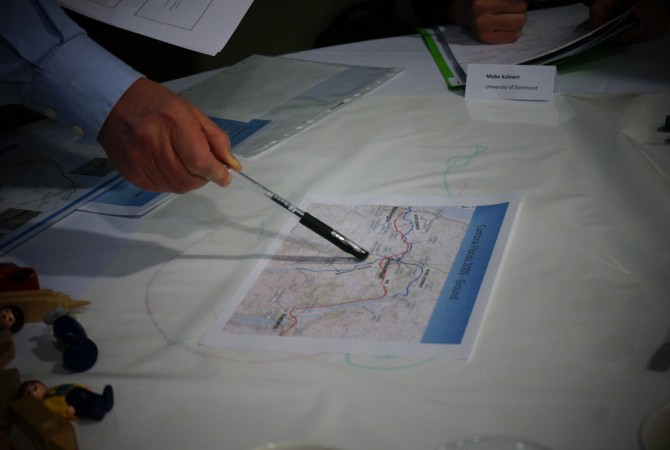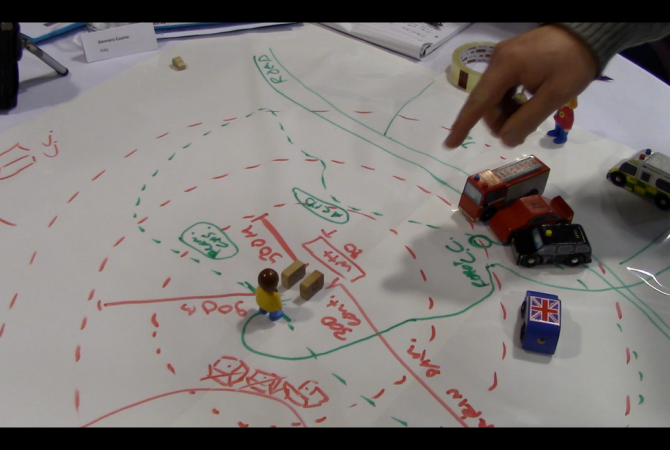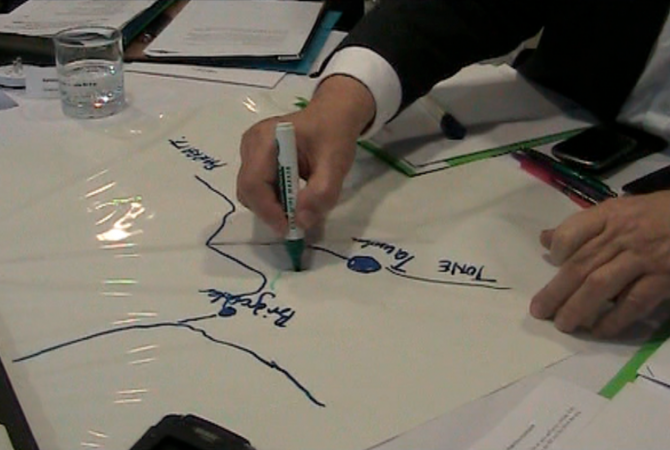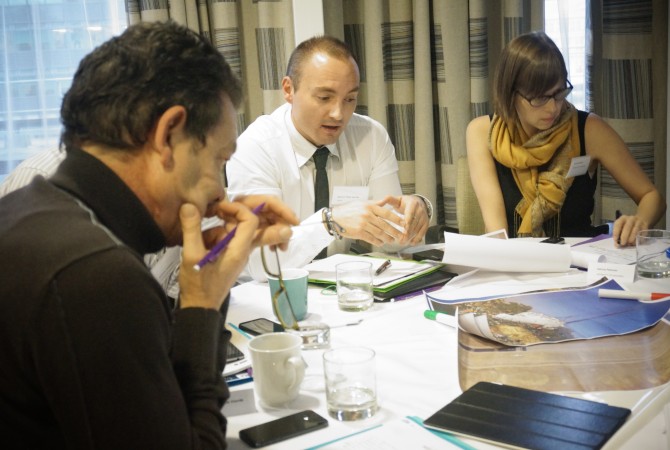Joint Event on Common Information Space, Brussels 28 February 2017
Motivation
The interoperability, interconnectivity and intercommunication of systems are the current predominant challenges in European crisis and disaster management. A systematic overview demonstrated that 34% of stakeholders’ requests aimed at improving disaster management included or were related to enhanced interoperability. This is by far the most frequently expressed request, followed by request for resources and technical solutions, 15% each. Aside from linguistic barriers, the lack of common taxonomies and standardized Network Enabled Communication are the two main impediments to European interoperability.
Workshop Report
Additional Information are available in the Final report which you can find here.
Advisory Board Workshop III, Manchester 20-21 February 2017
Cooperation and Communication
The final Workshop was attended by six Advisory Board members and ten consortiummembers. It was designed to solicit evaluation results, stakeholder visions for next steps, and a deeper understanding of how SecInCoRe’s results could impact current challenges and opportunities in pan-EU crisis management.
Objectives
In this Workshop, the main objectives were Review, Commission, Envision and Collaborate:
Review:
evaluation results, current challenges and opportunities
Commission:
stakeholder visions for next steps
Envision:
examining more specific project elements
Collaborate:
professional experts, social scientists and engineers
Workshop Report
Additional Information are available in the Final report which you can find here.
Co-Design Workshop II, Athens 10-11 September 2015
Where is SecInCoRe now?
SecInCoRe consists of two key elements: an inventory of past disaster events, data sets, ‘lessons learnt’, crisis management models and more and a Common Information Space concept that includes
new technological and organisational opportunities to contribute and retrieve information. This workshop did not focus on technology, but much has been done to implement and integrate software tools for SecInCoRe purposes. The challenge now is to make the proof of concept concrete with a prototype and experimental implementations. The Advisory Board experts, drawn from all over Europe and many organisations are not merely independent ‘evaluators’ of project results, but co-designers, central to this effort.
Objectives
In this Workshop, the main objectives were Experiment, Collaborate, Envision and Evaluate:
Experiment:
with new ways of working
Collaborate:
professional experts, social scientists and engineers
Envision:
creative responses, design trajectories, organisational practices
Evaluate:
technologies, practices, policies, concepts, ideas
Workshop Report
Additional Information are available in the Final report which you can find here.
Co-Design Workshop I, Manchester 9-10 December 2014
Unity in Diversity
Bringing together response experts from seven different countries brought home how important it is to attend to similarities and differences in Emergency Response, Processes and Roles:
- Data sets
- Information Systems
- Business Models
- Ethical, Legal and Societal Frameworks for Emergency Service provision
- Languages!
Even if standardisation progresses, diversity will remain an integral feature in practice, especially when transnational collaboration is needed.
Objectives
In this Workshop, the main objectives were Understand, Envision, Experiment and Collaborate:
Understand:
Current practices of emergency responders of various roles.
Envision:
technological potential and its relation to practice
Experiment:
with new ways of working that integrate new technologies
Collaborate:
professional experts, social scientists and engineers
Workshop Report
Additional Information are available in the Final report which you can find here.

